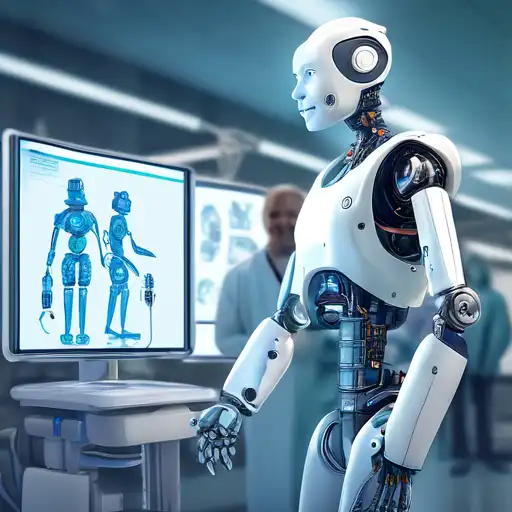The Dawn of Robotics in Healthcare
The integration of robotics into healthcare is revolutionizing the way medical services are delivered. From surgical procedures to patient care, robotics technology is setting new standards for precision, efficiency, and outcomes. This transformative approach is not just enhancing existing procedures but is also paving the way for new possibilities in medical treatment and patient management.
Revolutionizing Surgical Procedures
One of the most significant impacts of robotics in healthcare is in the field of surgery. Robotic-assisted surgery allows for unparalleled precision, reducing the risk of complications and improving recovery times. Surgeons can perform complex procedures with more control and flexibility than ever before, thanks to advanced robotic systems like the Da Vinci Surgical System.
Enhancing Patient Care and Rehabilitation
Beyond the operating room, robotics is transforming patient care and rehabilitation. Robotic exoskeletons are enabling patients with mobility issues to walk again, while robotic prosthetics are offering amputees a new lease on life. These innovations are not just about physical support; they're about restoring independence and improving quality of life for patients worldwide.
Automating Routine Tasks
Robotics is also making waves by automating routine tasks in healthcare settings. From dispensing medication to sanitizing hospital rooms, robots are taking on roles that reduce the workload on human staff, minimize human error, and increase operational efficiency. This automation is crucial in managing the increasing demands on healthcare systems globally.
The Future of Robotics in Healthcare
As technology advances, the potential applications of robotics in healthcare continue to expand. Researchers are exploring the use of nanorobots for targeted drug delivery, robotic nurses for patient monitoring, and even AI-driven diagnostic robots. The future of healthcare is one where robotics and human expertise work hand in hand to deliver superior care.
Challenges and Considerations
Despite the promising advancements, the integration of robotics into healthcare is not without challenges. High costs, ethical considerations, and the need for specialized training are significant hurdles. However, as technology becomes more accessible and society adapts, these challenges are likely to be overcome, further cementing robotics' role in healthcare.
In conclusion, robotics in healthcare is a game-changer, offering innovative solutions to age-old problems and opening new avenues for treatment and care. As we stand on the brink of this technological revolution, it's clear that the future of healthcare is robotic.
